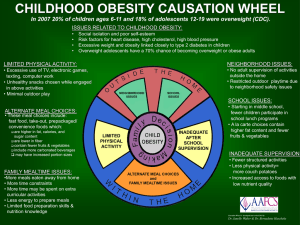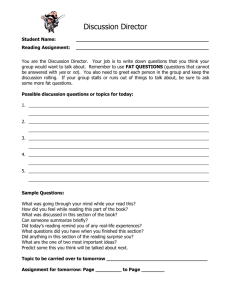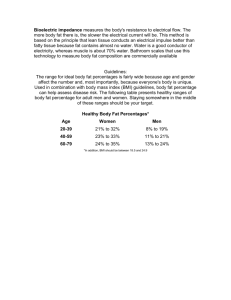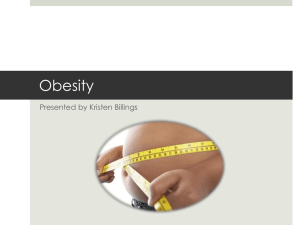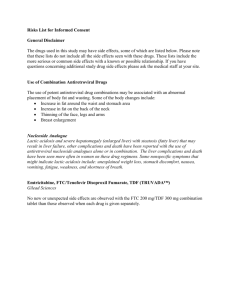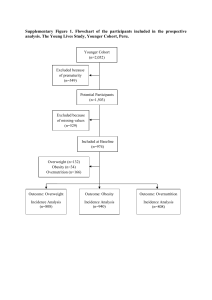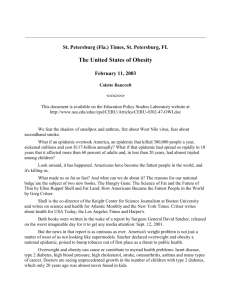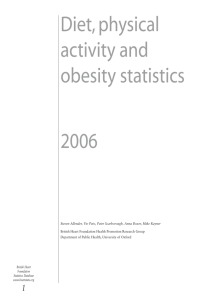Mpati Veterinary Clinic
advertisement
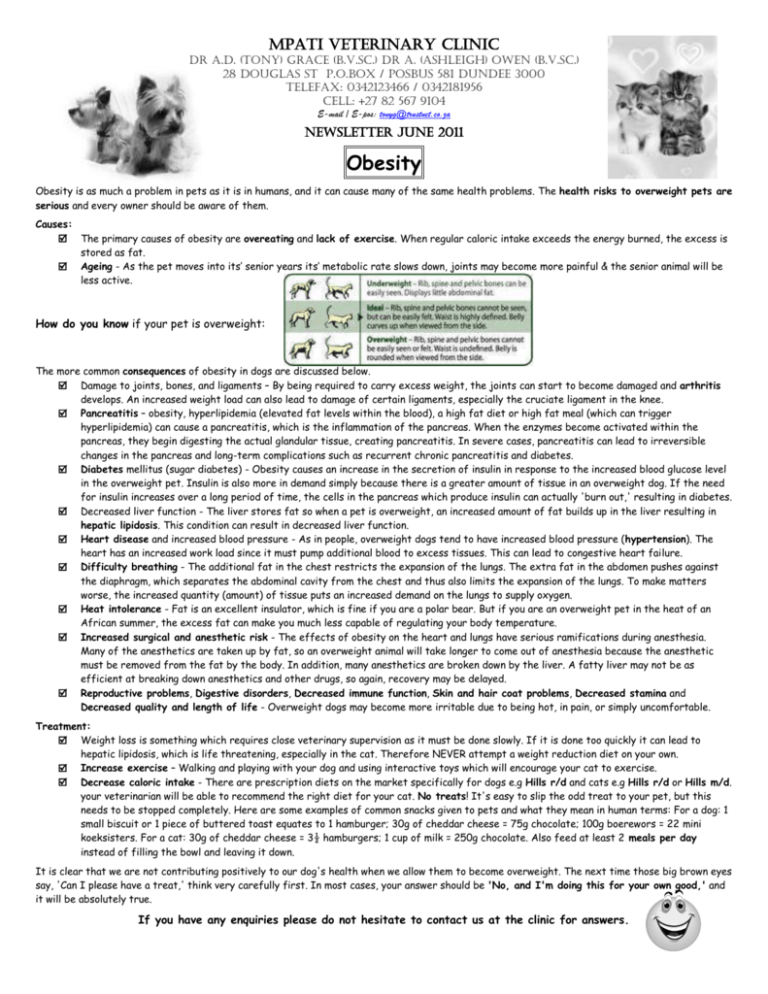
Mpati Veterinary Clinic Dr A.D. (TONY) Grace (B.V.Sc.) DR A. (ASHLEIGH) OWEN (B.V.SC.) 28 Douglas St P.O.Box / Posbus 581 Dundee 3000 Telefax: 0342123466 / 0342181956 Cell: +27 82 567 9104 E-mail / E-pos: tonyg@trustnet.co.za NEWSLETTER JUNE 2011 Obesity Obesity is as much a problem in pets as it is in humans, and it can cause many of the same health problems. The health risks to overweight pets are serious and every owner should be aware of them. Causes: The primary causes of obesity are overeating and lack of exercise. When regular caloric intake exceeds the energy burned, the excess is stored as fat. Ageing - As the pet moves into its’ senior years its’ metabolic rate slows down, joints may become more painful & the senior animal will be less active. How do you know if your pet is overweight: The more common consequences of obesity in dogs are discussed below. Damage to joints, bones, and ligaments – By being required to carry excess weight, the joints can start to become damaged and arthritis develops. An increased weight load can also lead to damage of certain ligaments, especially the cruciate ligament in the knee. Pancreatitis – obesity, hyperlipidemia (elevated fat levels within the blood), a high fat diet or high fat meal (which can trigger hyperlipidemia) can cause a pancreatitis, which is the inflammation of the pancreas. When the enzymes become activated within the pancreas, they begin digesting the actual glandular tissue, creating pancreatitis. In severe cases, pancreatitis can lead to irreversible changes in the pancreas and long-term complications such as recurrent chronic pancreatitis and diabetes. Diabetes mellitus (sugar diabetes) - Obesity causes an increase in the secretion of insulin in response to the increased blood glucose level in the overweight pet. Insulin is also more in demand simply because there is a greater amount of tissue in an overweight dog. If the need for insulin increases over a long period of time, the cells in the pancreas which produce insulin can actually 'burn out,' resulting in diabetes. Decreased liver function - The liver stores fat so when a pet is overweight, an increased amount of fat builds up in the liver resulting in hepatic lipidosis. This condition can result in decreased liver function. Heart disease and increased blood pressure - As in people, overweight dogs tend to have increased blood pressure (hypertension). The heart has an increased work load since it must pump additional blood to excess tissues. This can lead to congestive heart failure. Difficulty breathing - The additional fat in the chest restricts the expansion of the lungs. The extra fat in the abdomen pushes against the diaphragm, which separates the abdominal cavity from the chest and thus also limits the expansion of the lungs. To make matters worse, the increased quantity (amount) of tissue puts an increased demand on the lungs to supply oxygen. Heat intolerance - Fat is an excellent insulator, which is fine if you are a polar bear. But if you are an overweight pet in the heat of an African summer, the excess fat can make you much less capable of regulating your body temperature. Increased surgical and anesthetic risk - The effects of obesity on the heart and lungs have serious ramifications during anesthesia. Many of the anesthetics are taken up by fat, so an overweight animal will take longer to come out of anesthesia because the anesthetic must be removed from the fat by the body. In addition, many anesthetics are broken down by the liver. A fatty liver may not be as efficient at breaking down anesthetics and other drugs, so again, recovery may be delayed. Reproductive problems, Digestive disorders, Decreased immune function, Skin and hair coat problems, Decreased stamina and Decreased quality and length of life - Overweight dogs may become more irritable due to being hot, in pain, or simply uncomfortable. Treatment: Weight loss is something which requires close veterinary supervision as it must be done slowly. If it is done too quickly it can lead to hepatic lipidosis, which is life threatening, especially in the cat. Therefore NEVER attempt a weight reduction diet on your own. Increase exercise – Walking and playing with your dog and using interactive toys which will encourage your cat to exercise. Decrease caloric intake - There are prescription diets on the market specifically for dogs e.g Hills r/d and cats e.g Hills r/d or Hills m/d. your veterinarian will be able to recommend the right diet for your cat. No treats! It's easy to slip the odd treat to your pet, but this needs to be stopped completely. Here are some examples of common snacks given to pets and what they mean in human terms: For a dog: 1 small biscuit or 1 piece of buttered toast equates to 1 hamburger; 30g of cheddar cheese = 75g chocolate; 100g boerewors = 22 mini koeksisters. For a cat: 30g of cheddar cheese = 3½ hamburgers; 1 cup of milk = 250g chocolate. Also feed at least 2 meals per day instead of filling the bowl and leaving it down. It is clear that we are not contributing positively to our dog's health when we allow them to become overweight. The next time those big brown eyes say, 'Can I please have a treat,' think very carefully first. In most cases, your answer should be 'No, and I'm doing this for your own good,' and it will be absolutely true. If you have any enquiries please do not hesitate to contact us at the clinic for answers.
